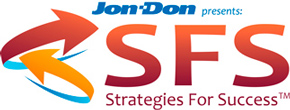 As with many diseases, Affluenza is harder to detect in the early stages when it’s easiest to cure. Conversely, it’s easier to detect, but harder to cure, in its later stages when behaviors have become habits.
As with many diseases, Affluenza is harder to detect in the early stages when it’s easiest to cure. Conversely, it’s easier to detect, but harder to cure, in its later stages when behaviors have become habits.
As I mentioned in Part I of this series, you can usually trace the genesis of business problems to when a company is doing well: sales are strong; profits are deep; cash flow is healthy. This is when business leaders lose focus, become complacent, or adopt attitudes of entitlement.
Our decisions are driven by ego and a sense of entitlement. (We considered many factors in Part 2 of this series.) Growing a business demands a lot of sacrifice on the part of the owner. It can exact a heavy toll in terms of time spent away from families, mental exhaustion, and even getting worn down physically. When business begins to go well, it only seems logical that some owners would feel a sense of entitlement to lavishly reward themselves for their sacrifices: the luxury car; the vacation home; the abundant travel. There’s nothing inherently wrong with these activities. It’s when they interfere with the performance of our companies, or when they take value away from our customers, that they get in the way.
Sometimes Affluenza is driven by a swollen ego, similar to the attitudes of entitlement above. The primary difference is that with a swollen ego we use Affluenza to draw attention to ourselves or to maintain an appearance of success. An ego that is out of control is one of the most difficult areas to address with a business owner, as they are usually the last ones to recognize when their egos have gotten out of control.
Sometimes Affluenza doesn’t manifest itself with purchases or financial decisions. Instead it shows up in subtle behaviors or in attitudes toward other people.
We forget what it’s like to have a boss. Few of us are plopped into positions of authority overnight. We usually grow into them over time. As our companies grow, or as we rise through the ranks in our business, it’s easy to forget what it’s like to be one of the “workers.” The Queen of Mean, Leona Helmsley, is famous for her off-handed comment about “the little people.” Few of us would be brash enough to make that comment, but how often do we unconsciously telegraph a similar message with our behavior?
When we’re the boss we can ignore feedback we don’t want to hear. We don’t have to ask for opinions, but we can freely give our own. We don’t have to follow the chain of command we put in place if we feel like meddling. And we sure don’t have to go to the boss and ask for a raise. All we have to do is write ourselves a bigger check.
As we learn lessons throughout our lives we frequently adopt “rules” to help guide our future decisions. One of the rules I’ve used in my life is the “Alex Bevan” rule.
When I was in my early 20’s I owned a night club and one of the entertainers I hired was a popular Cleveland recording artist named Alex Bevan. In getting to know Alex, I learned he lived a very frugal life. I found that interesting considering his popularity and success…and the popular image of recording stars living lavish lifestyles. Alex told me his father advised him early on to, “Always live like you don’t know when you’ll get your next gig. That way you’ll never have to compromise your values to get it.” That was great advice for a recording artist. It’s also great advice for business owners.
Chuck Violand (more about Chuck)
SFS Instructor
CEO Violand Management Associates
